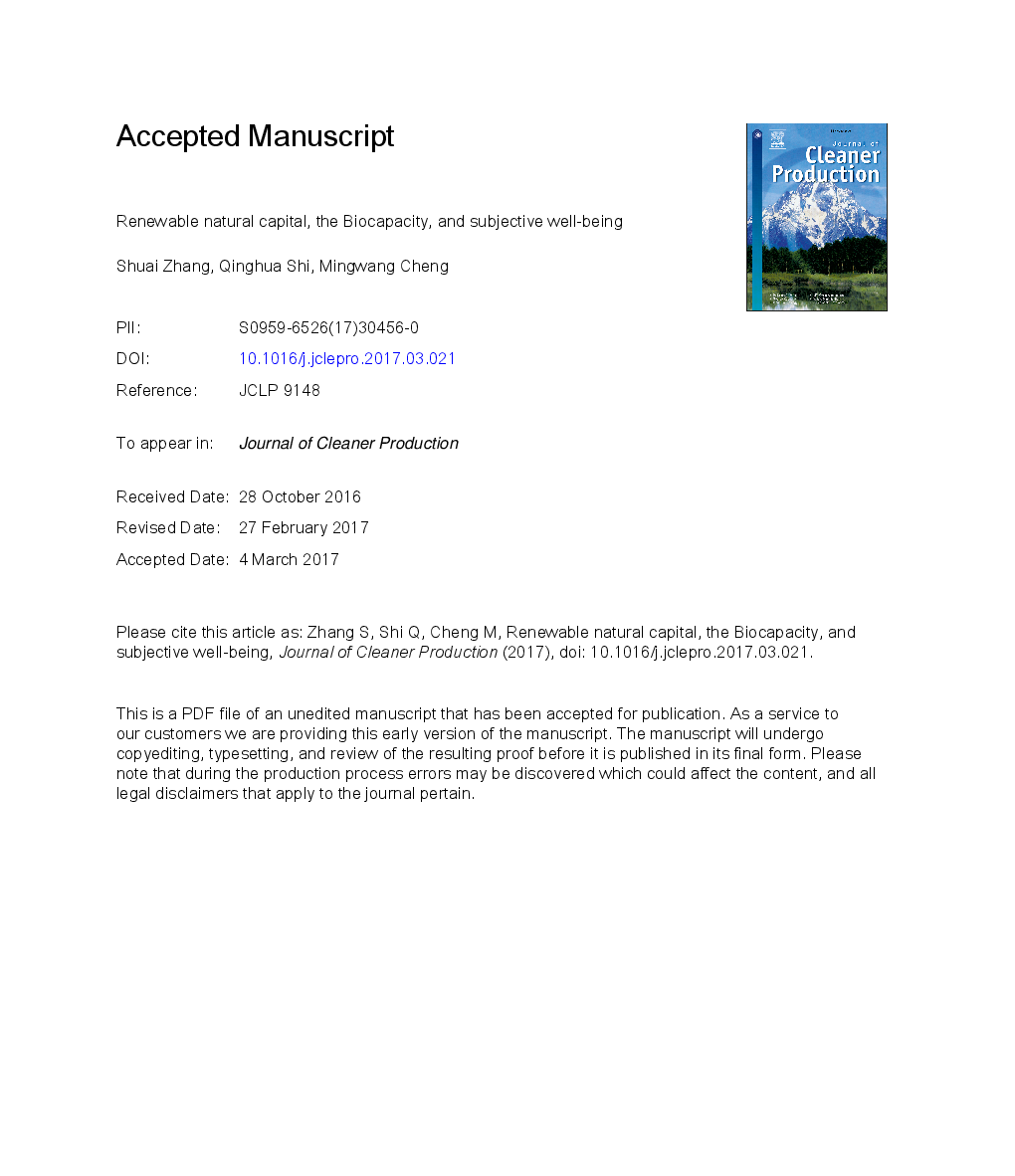ترجمه فارسی عنوان مقاله
سرمایه طبیعی قابل تجدید، ظرفیت زیستی و رفاه ذهنی
عنوان انگلیسی
Renewable natural capital, the Biocapacity, and subjective well-being
| کد مقاله | سال انتشار | تعداد صفحات مقاله انگلیسی |
|---|---|---|
| 121692 | 2017 | 27 صفحه PDF |
منبع

Publisher : Elsevier - Science Direct (الزویر - ساینس دایرکت)
Journal : Journal of Cleaner Production, Volume 150, 1 May 2017, Pages 277-286
ترجمه کلمات کلیدی
رفاه ذهنی، سرمایه طبیعی قابل تجدید، ظرفیت بیولوژیک، رابطه مثبت،
کلمات کلیدی انگلیسی
Subjective well-being; Renewable natural capital; Biocapacity; Positive relationship;

